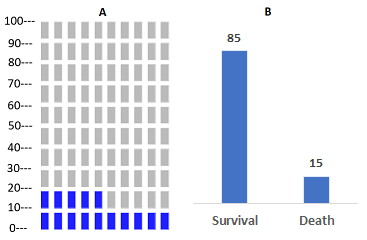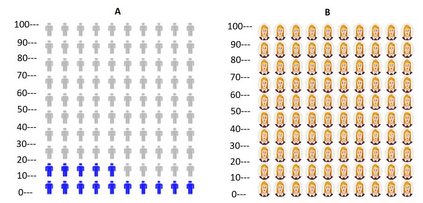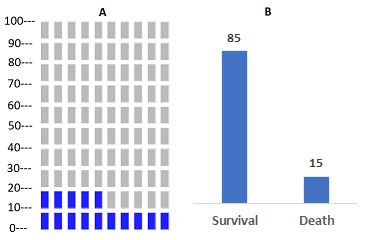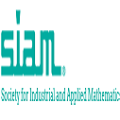Given the impact of health literacy (HL) on patients outcomes, limited health literacy (LHL) is a major barrier in cancer care globally. HL refers to the degree in which an individual is able to acquire, process and comprehend information in a way to be actively involved in their health decisions. Previous research found that almost half of the population in developed countries have difficulties in understanding health related information. With the gradual shift toward the shared decision making (SDM) process and digital transformation in oncology, the need for dealing with low HL issues is more crucial. Decision making in oncology is often accompanied by considerable consequences on patients lives, which requires patients to understand complex information and be able to compare treatment methods by considering their own values. How health information is perceived by patients is influenced by various factors including patients characteristics and the way information is presented to patients. Based on the findings, identifying patients with low HL and using simple data visualizations are the best practice to help patients and clinicians in dealing with LHL. Furthermore, preparing reliable sources of information in tools such as patient decision aids (PDA), as well as involving HL mediators in consultation sessions supports patients to make sense of complex information.
翻译:鉴于卫生知识普及(HL)对患者结果的影响,有限的卫生知识普及(LHL)是全球癌症护理的一个主要障碍。HL是指个人能够以积极参与其卫生决策的方式获取、处理和理解信息的程度。以前的研究发现,发达国家近一半的人口难以了解与健康有关的信息。随着逐渐转向共同决策(SDM)进程和肿瘤学的数字转换,处理低卫生知识问题的必要性更为关键。在肿瘤决策时往往会给患者的生活带来相当大的后果,这就要求患者了解复杂的信息,并能通过考虑自己的价值观来比较治疗方法。病人对健康信息的认识受到各种因素的影响,包括病人的特点和向病人提供信息的方式。根据研究结果,确定低卫生知识水平患者和使用简单的数据直观化是帮助患者和临床医生与LHL打交道的最佳做法。此外,在患者决策辅助工具(PDA)中收集可靠的信息来源,以及让HL调解员参与磋商会议,支持患者了解复杂的信息。








